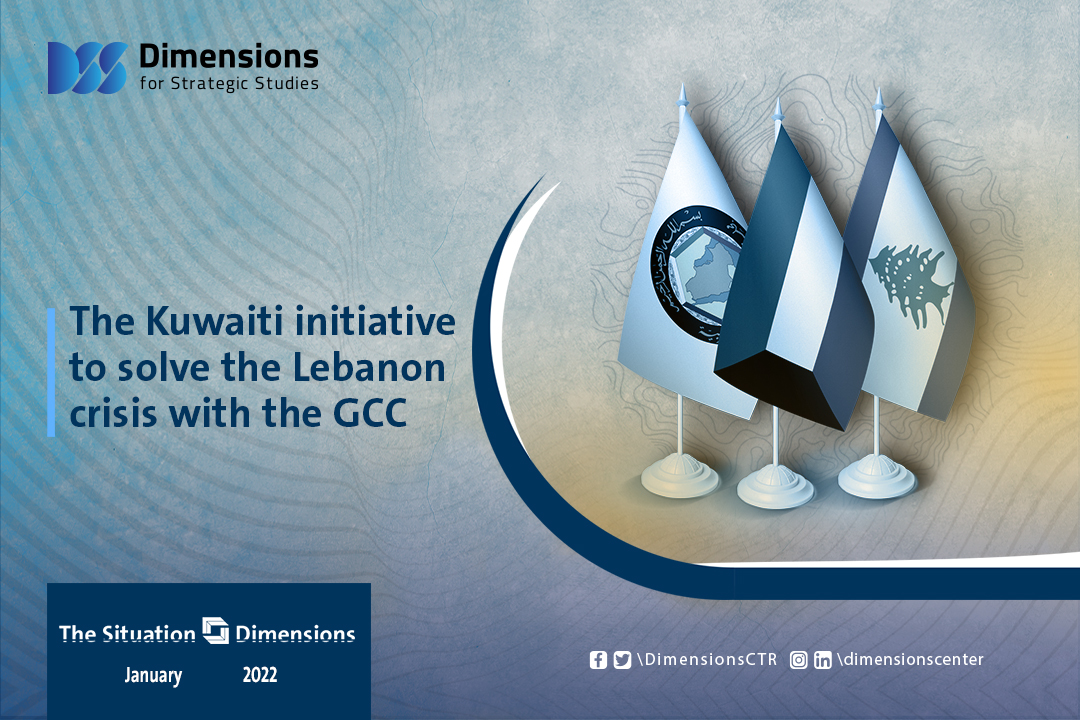
The Kuwaiti initiative to solve the Lebanon crisis with the GCC
2022-01-252103 view
Kuwaiti Foreign Minister Ahmed Nasser Al-Mohammed Al-Sabah presented a twelve-point initiative to the Lebanese state represented by the President of the Republic and the Prime Minister under the slogan "Restore confidence and resolve the crisis with the Gulf states." This initiative must be viewed from two perspectives: how it is presented, and in terms of its content. It is no secret to anyone; however, that the initiative is not solely Kuwaiti, but rather an Arab Gulf, specifically Saudi. And this was reflected by the Kuwaiti minister saying: “The visit and the initiative are coordinated by the Gulf states”.
Since the resignation of the Lebanese Minister, George Kordahi, there is talk of a French-Saudi initiative that has not achieved any diplomatic or political results. As such, the ambassadors who were withdrawn by their Gulf countries have not been resent to Beirut, and the attack on the Gulf Cooperation Council countries and the Arab League by Hezbollah’s public and leaders has not stopped. It became clear that the problem, in its over-all nature, is between Hezbollah and Saudi Arabia.
Since the Kingdom does not directly talk or negotiate with Hezbollah, but rather through the Lebanese state, and since the relationship with the Lebanese state was limited to a joint phone call between Mikati, on the one hand, and Macron and bin Salman, on the other; it is likely that Saudi Arabia has agreed to a Kuwaiti initiative to mediate - given that Kuwait is the Gulf state which Hezbollah considers more flexible towards it - and it was said that the visit was kept confidential to prevent Hezbollah from circumventing it.
The terms of the initiative reiterated the international and Arab conditions combined to solve the Lebanese crisis; the most important of which are the reforms required of the Lebanese state, extending its control, working with the World Bank, and holding elections. As for the crisis with the Gulf, the other clauses came within the framework of the conditions for its solution, on top of which was also the repetition of everything related to the events that transpired last year, and were attributed to Hezbollah, namely border control, drug smuggling, and Hezbollah’s interference in Gulf and Arab affairs, in addition to its hosting the activities of groups against the Gulf Cooperation Council member states.
The basic and most important conditions in this initiative are those related to the implementation of international resolutions, Arab agreements, the Taif Accord, and the policy of disassociation; which are aimed at Hezbollah’s weapons and influence in the country and in the region; especially in Yemen. These conditions cannot be separated from the developments of events and escalation in Yemen; along with the and the needs of parties to the conflict to negotiate a solution.
Given the indications issued by Hezbollah rejecting the initiative as impossible, and as a reflection of the conditions of those hostiles to Hezbollah in the region; seems that these conditions will create a political crisis between the Lebanese parties in the coming days until the date of a response by the Lebanese Foreign Minister, Abdullah Bou Habib is issued.





